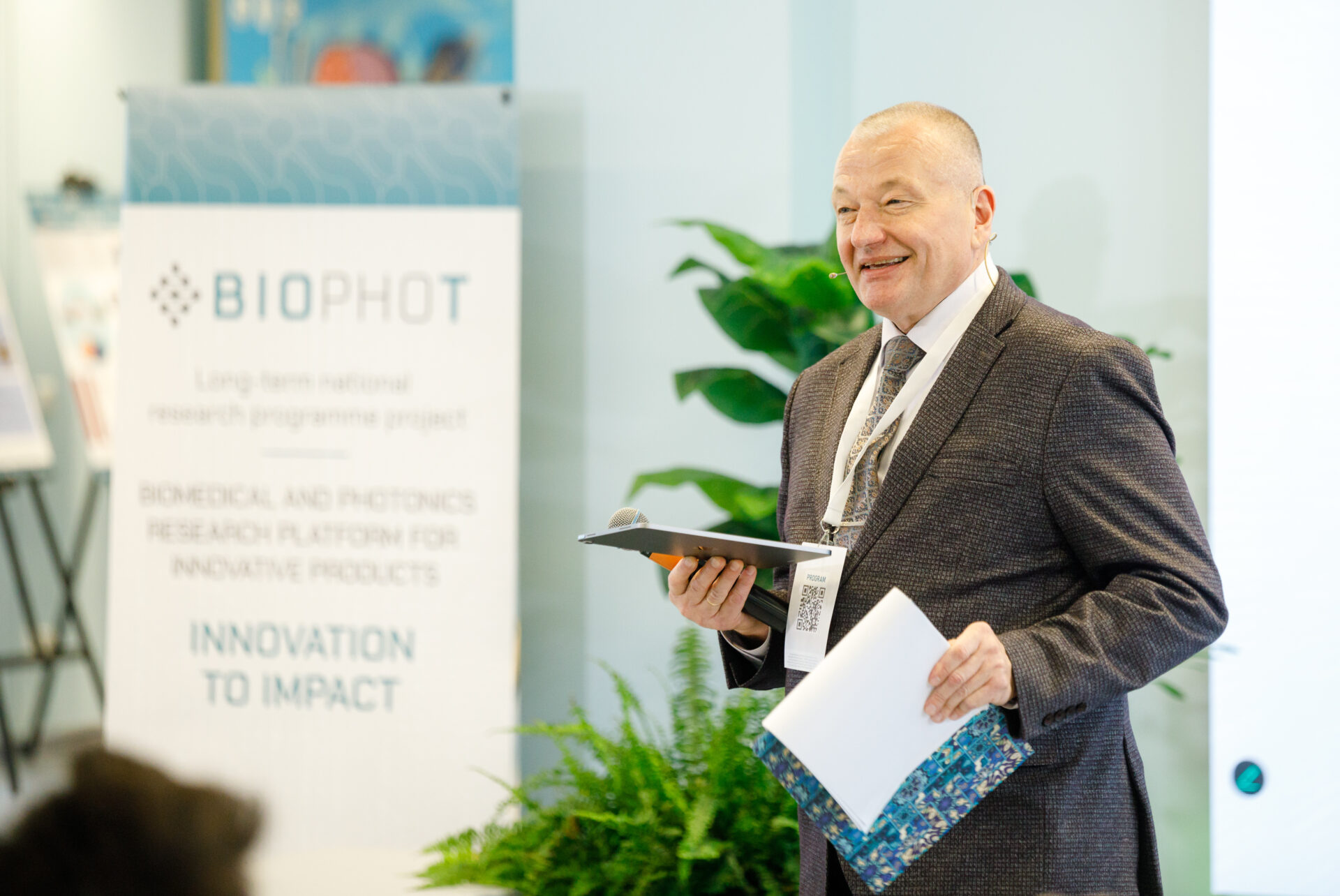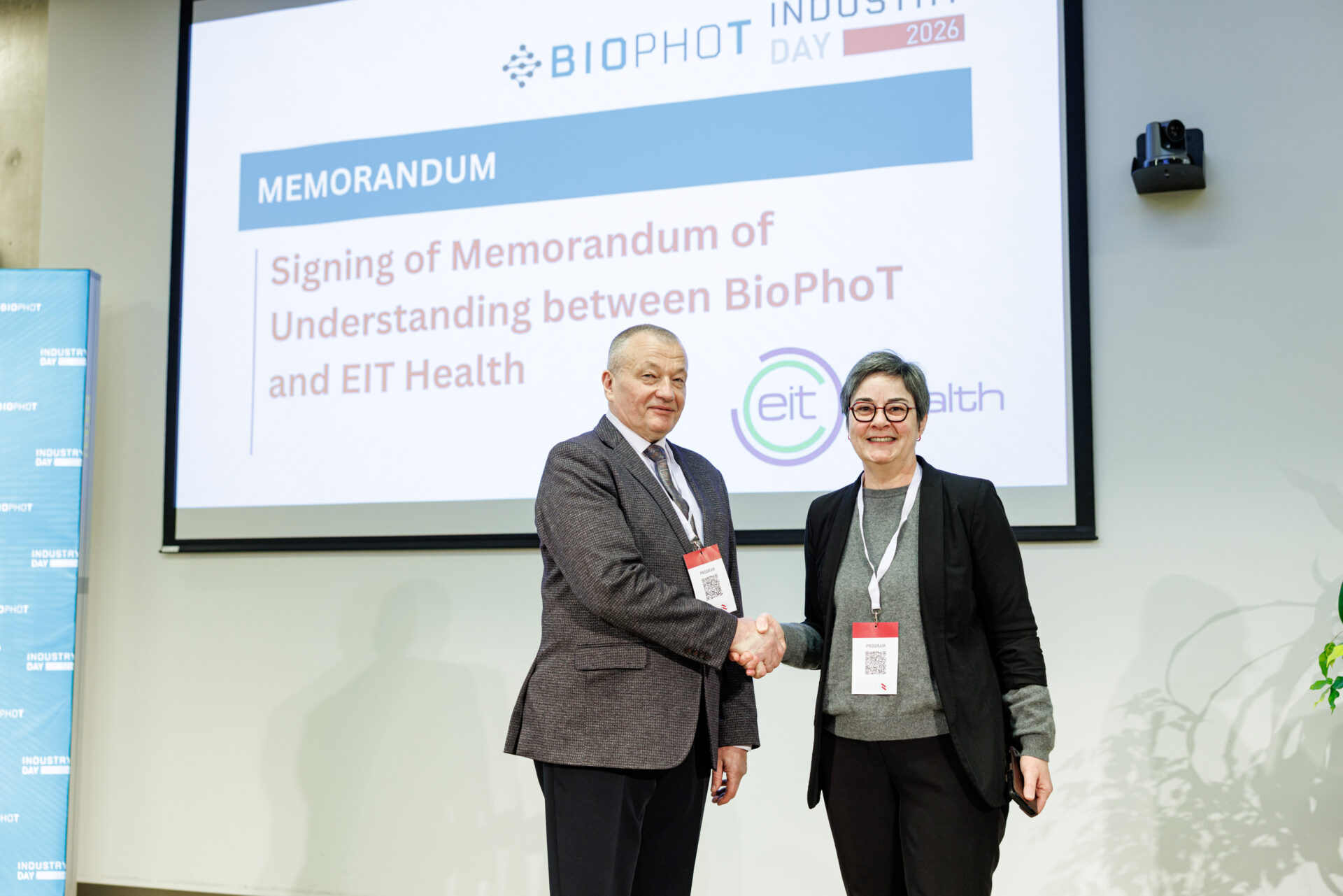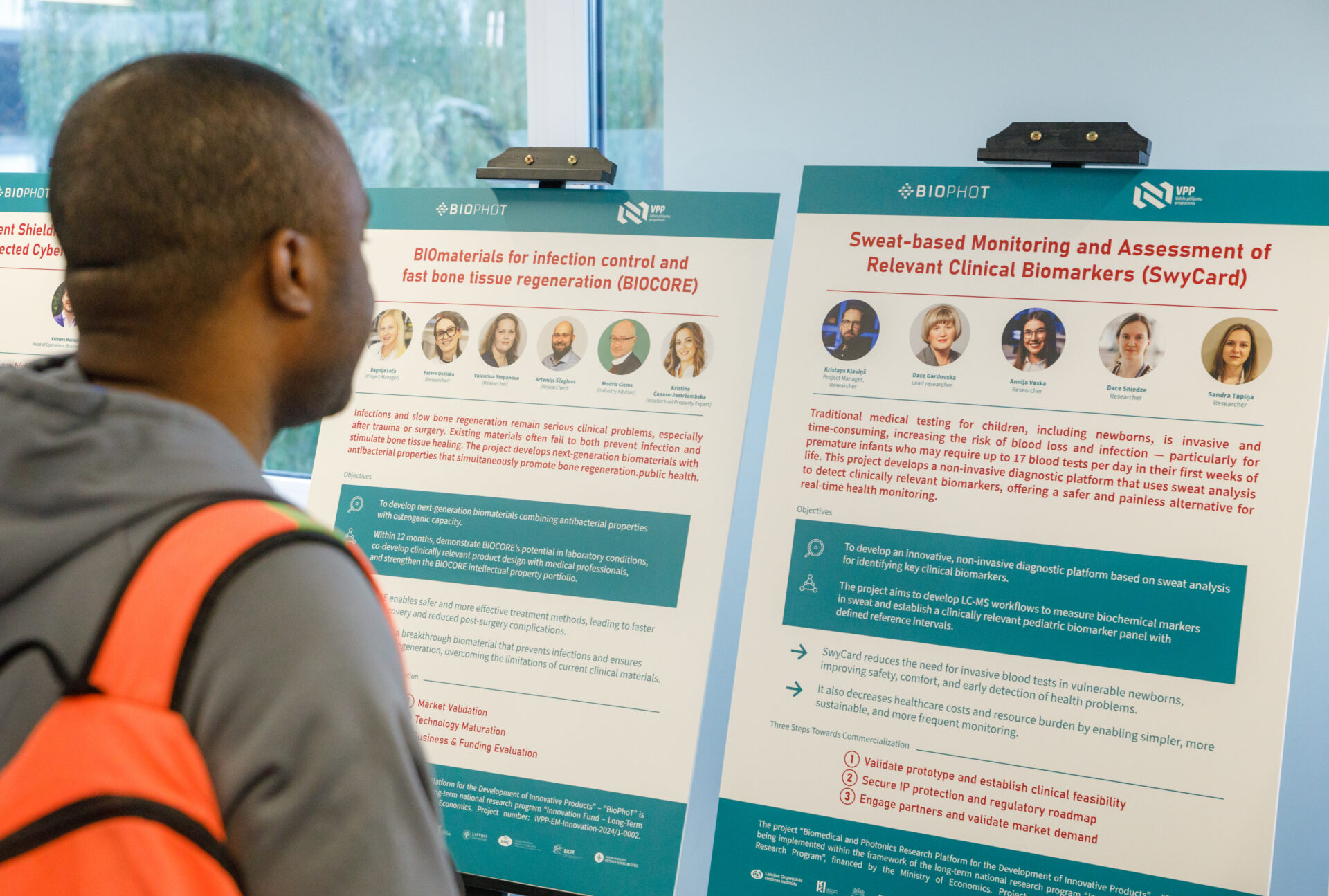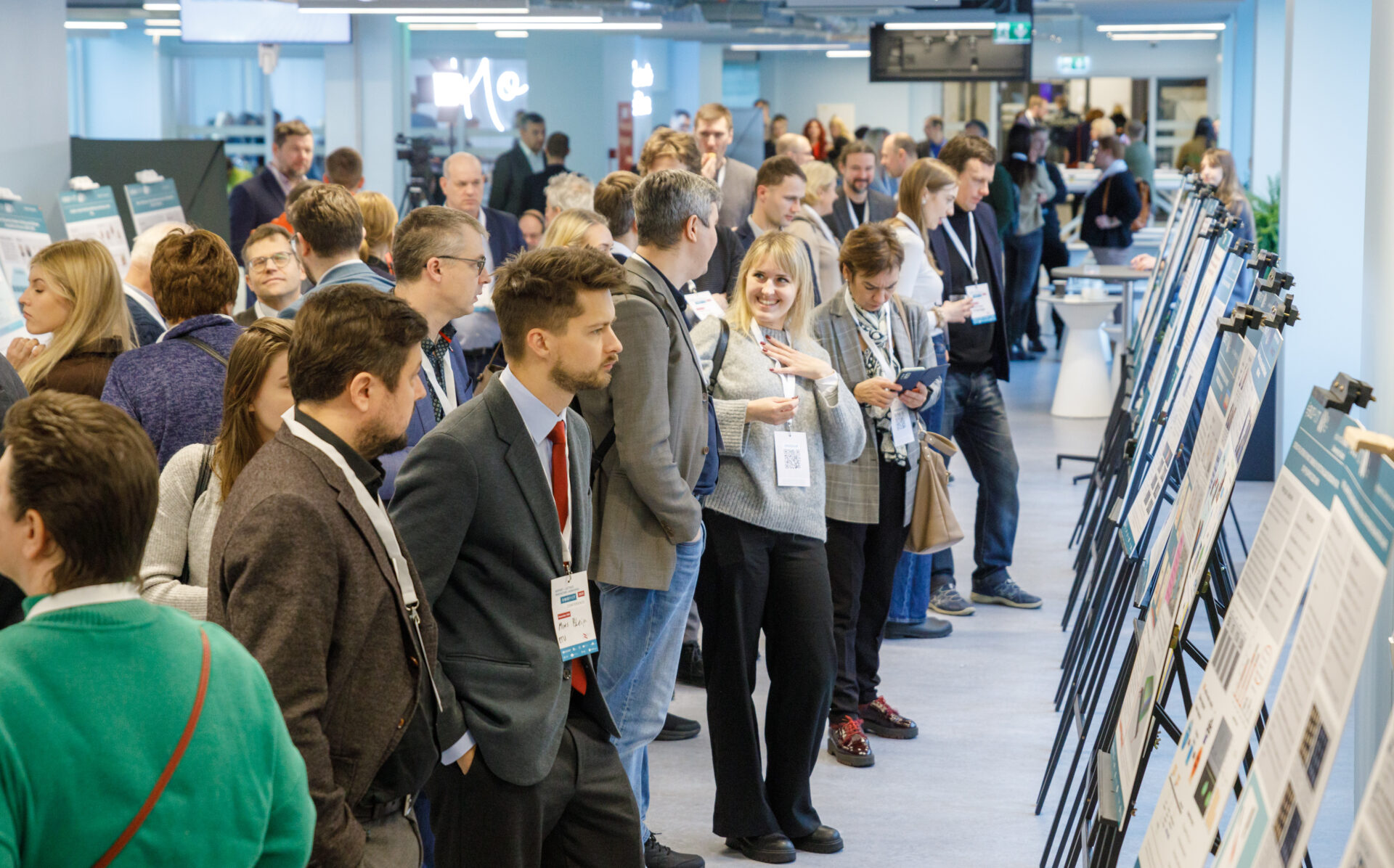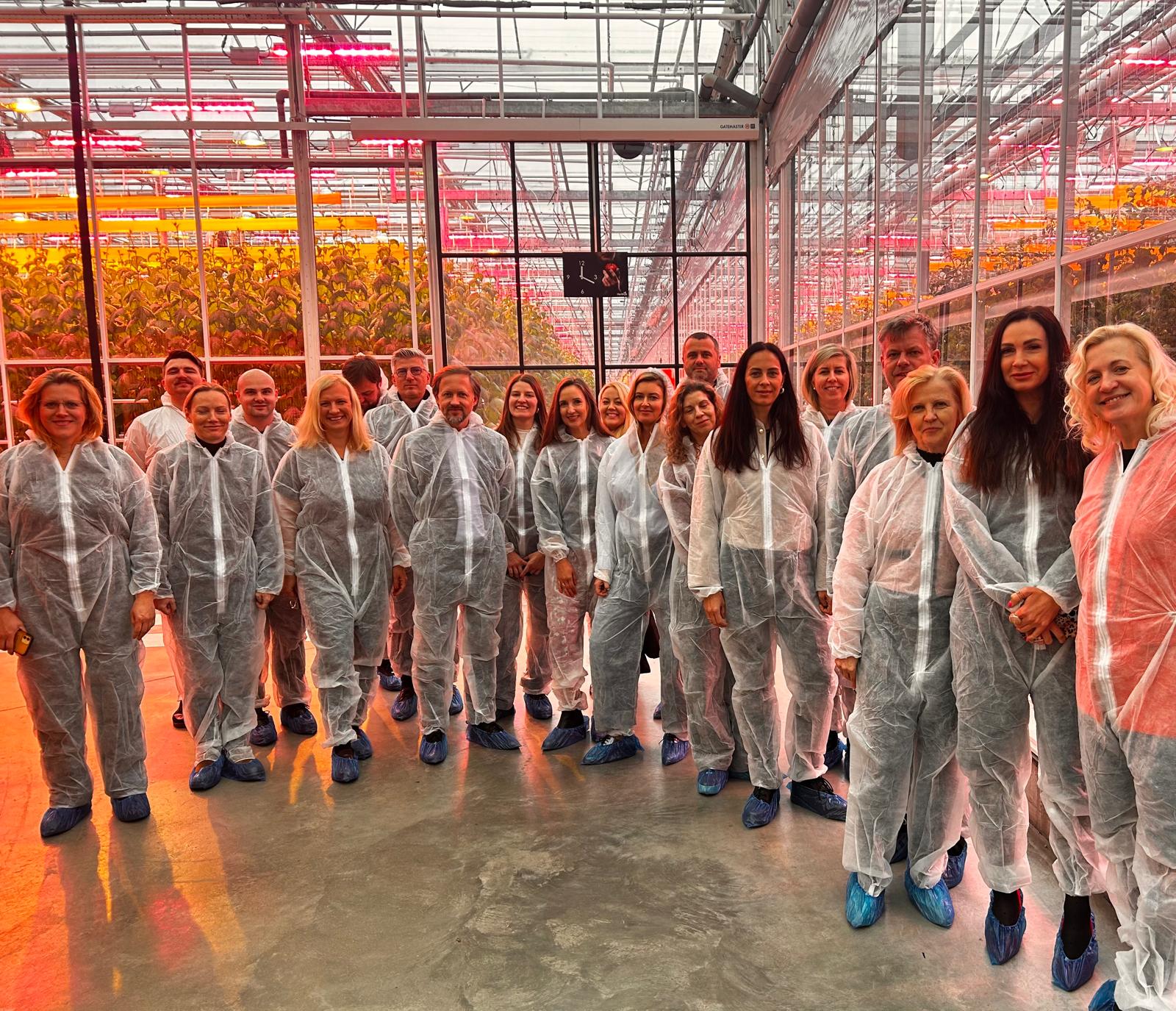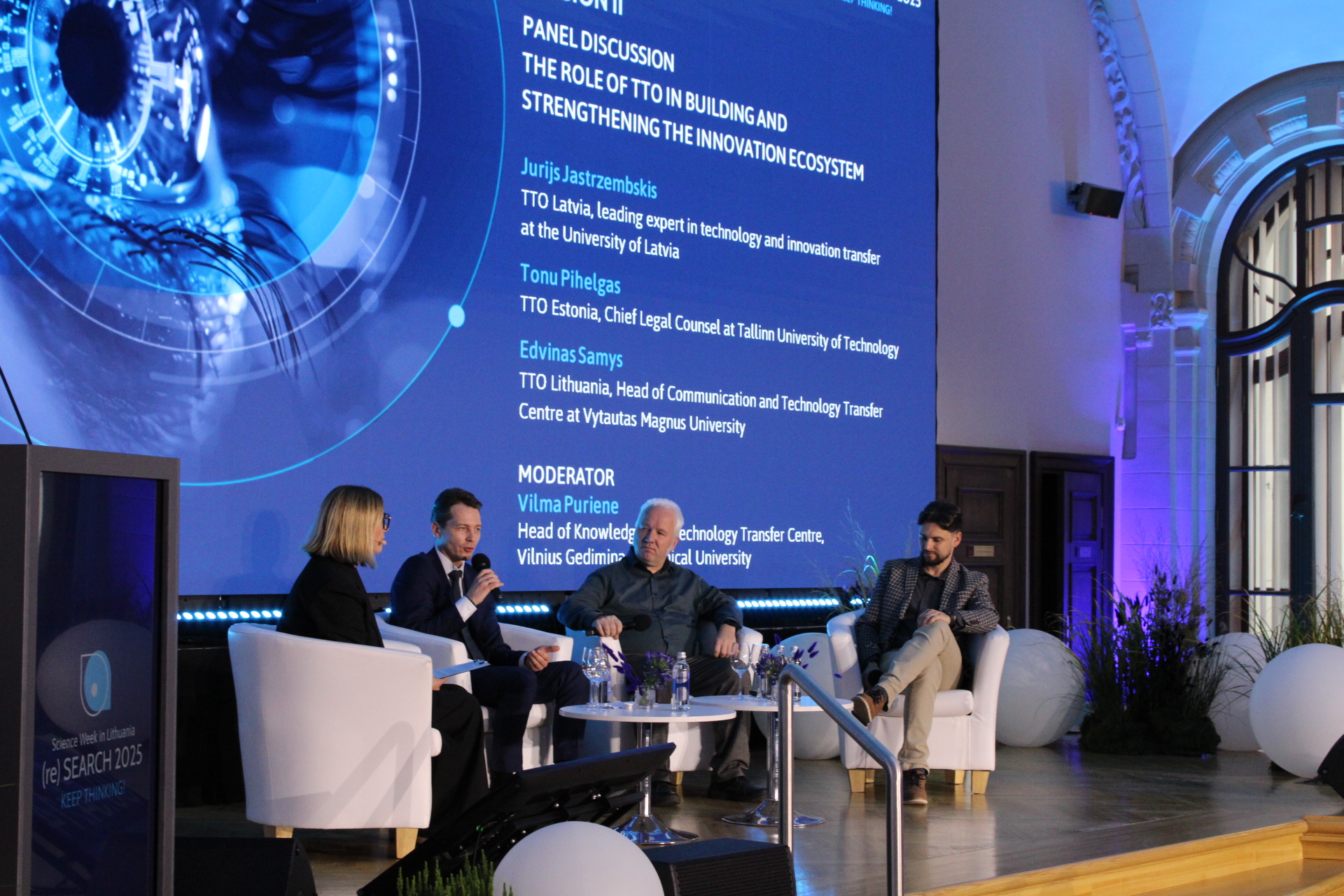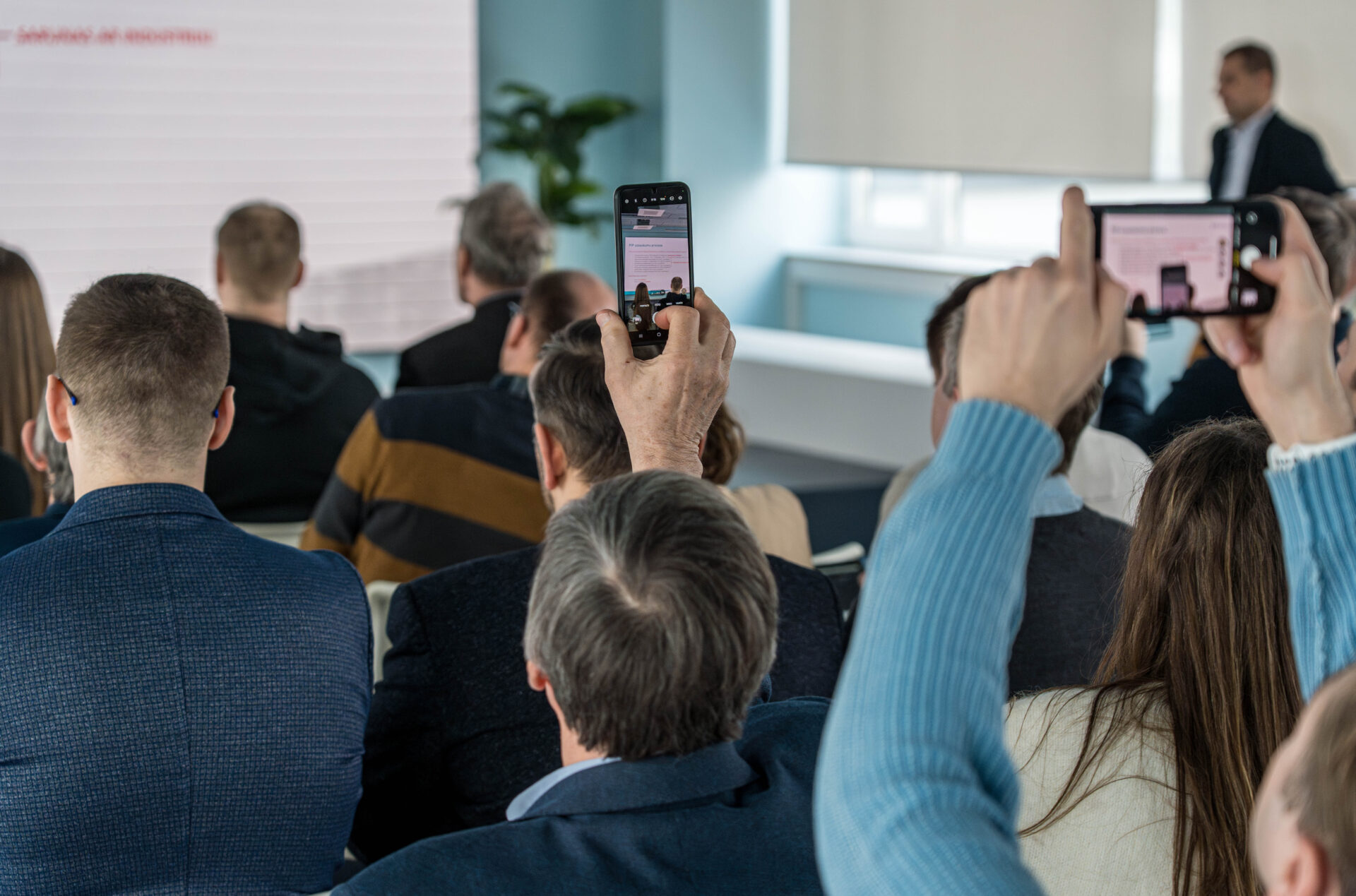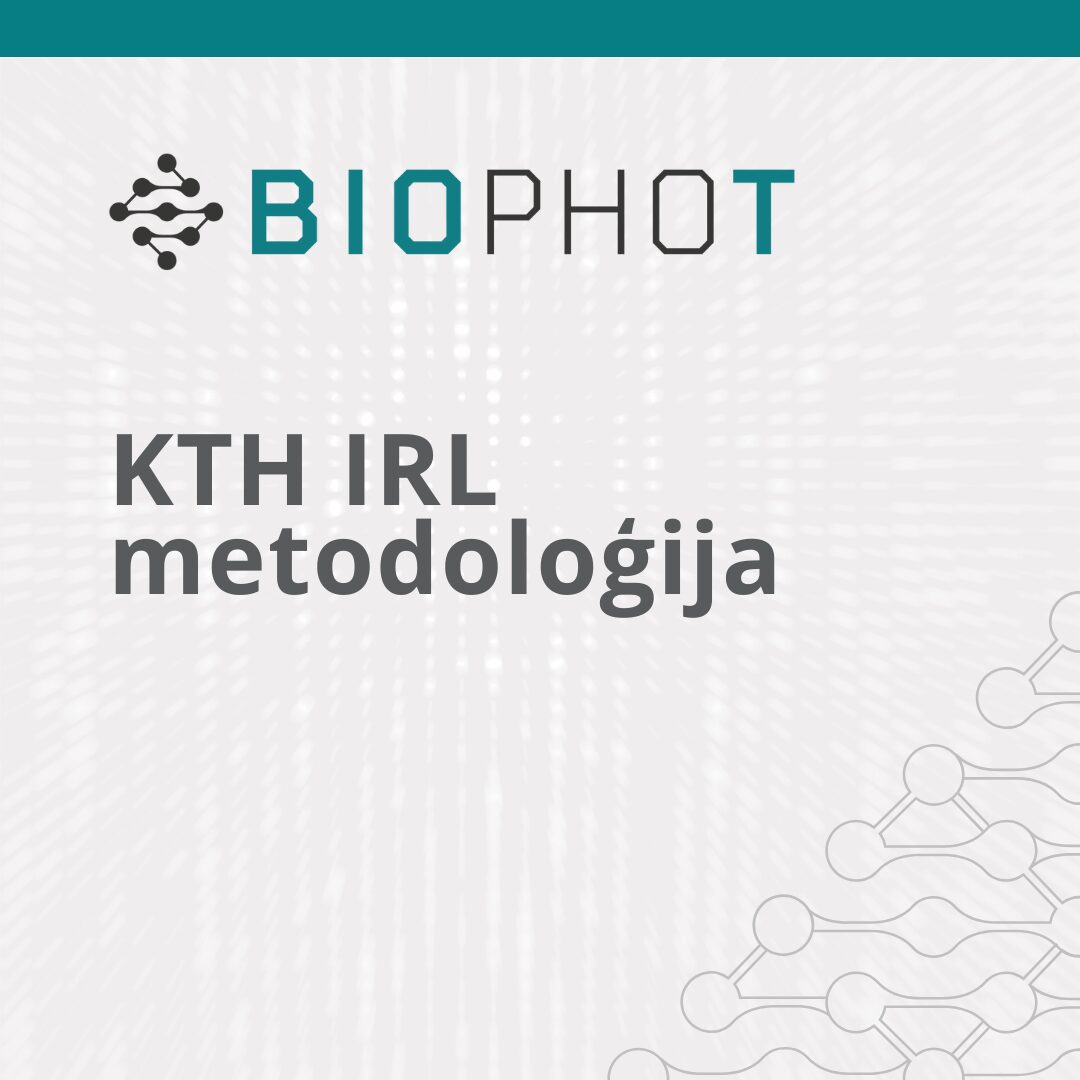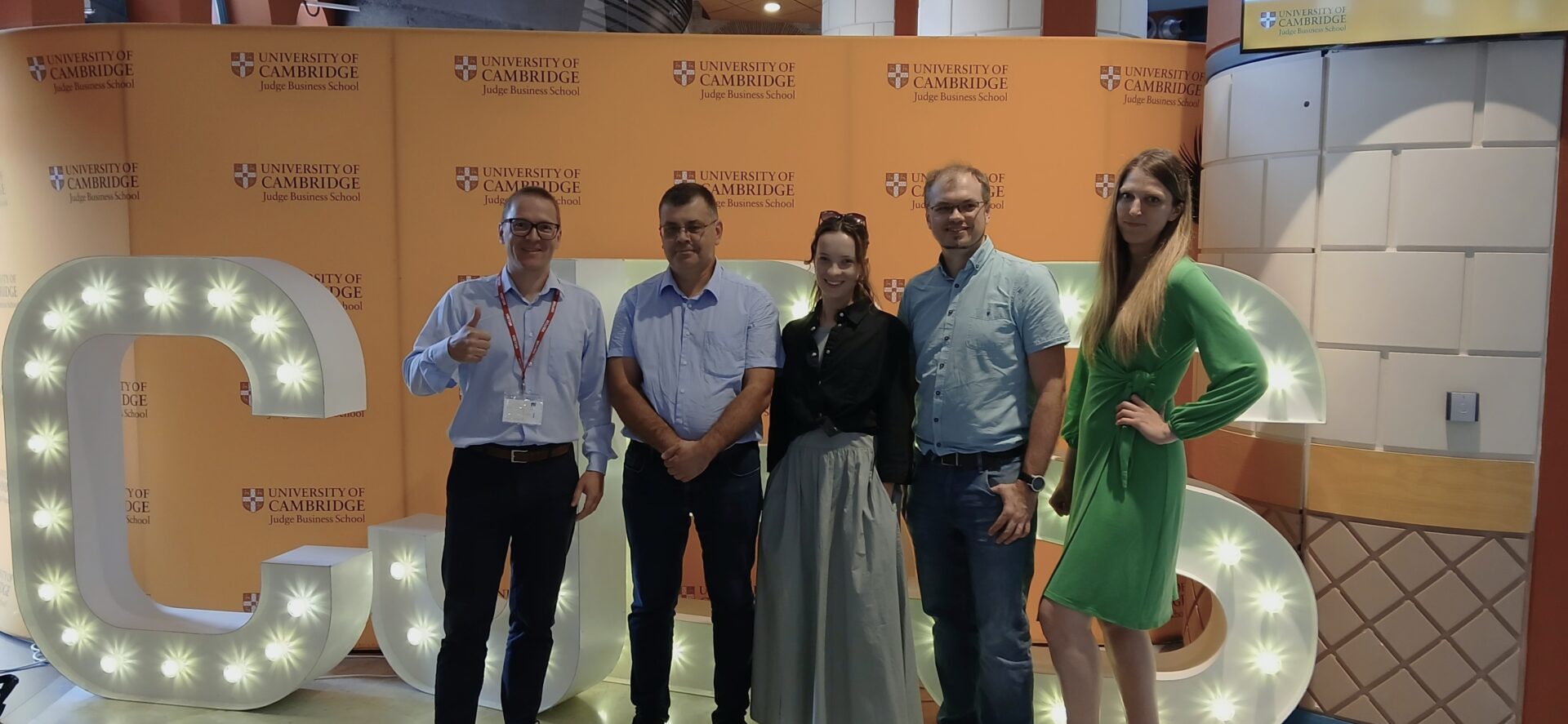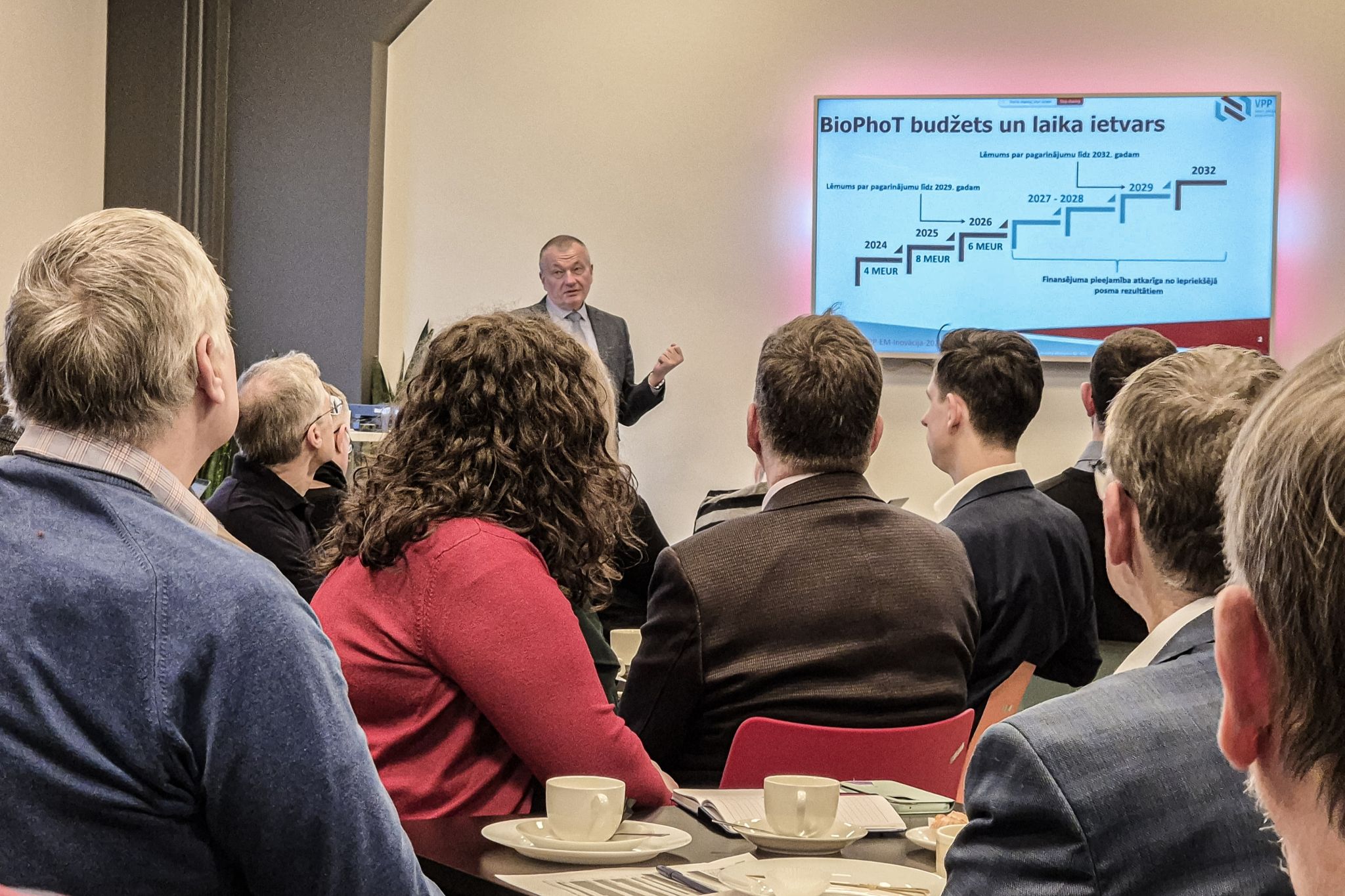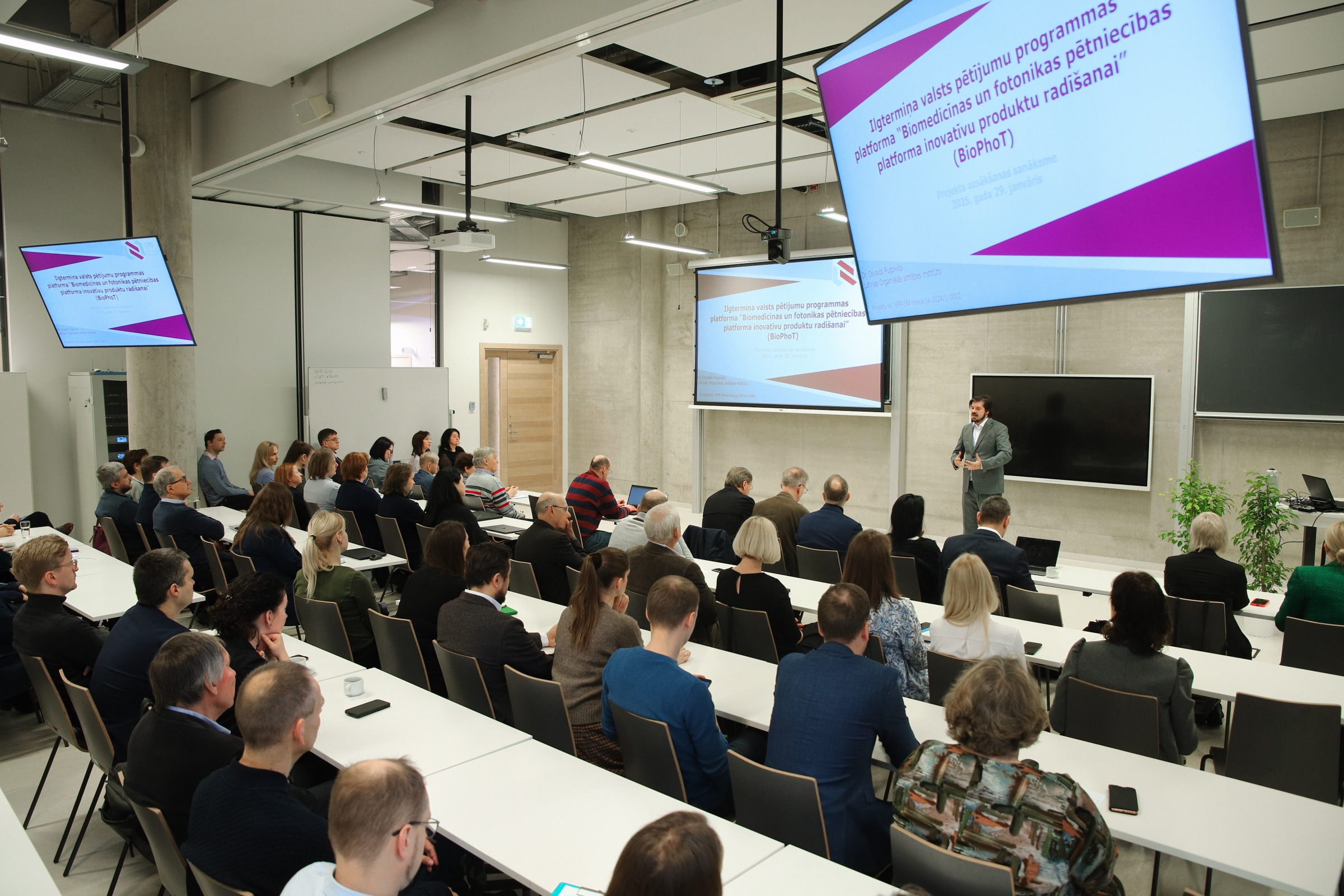Development
-

BioPhoT platform presents first year results and next phase of growth
-

BioPhoT and EIT Health Strengthen Collaboration to Advance Health Innovation in Latvia and Europe
-

Insight into BioPhoT 1st Call project ideas - scientific posters
-

BioPhoT conference demonstrates Latvia's potential to translate scientific excellence into market-ready solutions
-

“BioPhoT strengthens links with industry at the National Innovative Capital Companies Initiative
-

“BioPhoT establishes working group to strengthen support for EU projects
-

VIDEO: 2nd Infoday of the competition with the participation of the Latvian Council of Science and the Ministry of Defence
-

Latvian experience in technology transfer: the BioPhoT platform as an example from the Baltic region
-

“BioPhoT offers a new initiative for science-industry collaboration
-

KTH IRL methodology: recording and materials available
-

"BioPhoT research team learns the innovation pathway in Cambridge
-

Institute of Solid State Physics Scientists' Breakfast in January: funding innovation projects in 2025 - opportunities of the BioPhoT platform
-

12.8 million available for researchers to develop innovative biomedical and photonics technologies
